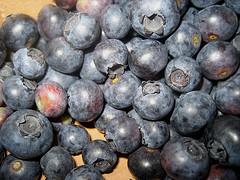While we all joke about pans of chocolate brownies or pints of ice cream for stress relief, there are foods that can help you manage high-stress times and feel good without packing on weight. Making smart food choices can improve your energy level and ability to cope with both day-to-day and extraordinary stresses. The best foods for stress are vitamin- and nutrient-rich, fresh and as close to their natural state as possible when eaten.
Vegetables
Choose a variety of vegetables for a diet that keeps your stress levels under control. Green vegetables, including asparagus, have significant amounts of folic acid. Red and yellow vegetables, including peppers, include vitamins A and C as well as folic acid. Folic acid and B vitamins contribute to the production of seratonin in the brain, encouraging stable moods and good mental and emotional function. Vitamins A and C can improve cell regeneration and overall health.
Fresh Fruits and Treats
Look for antioxidant-rich fresh fruits to help keep your stress levels under control. Deeply colored berries, including blueberries, blackberries and raspberries, are ideal. Accompany your fresh fruits with good-quality low-fat yogurt, low-fat cottage cheese or a small amount of good-quality dark chocolate. Low-fat dairy products have tryptophan, which encourages the production of seratonin and 5-HTP in the brain. These components both reduce stress and encourage well-being. Dark chocolate has a high magnesium level, which can encourage relaxation.
Proteins
Select good-quality protein sources. Lentils, quinoa, chickpeas and legumes include high levels of B vitamins for stress reduction. The essential fatty acids in salmon and other fish can improve your mental health and well-being. Low-fat meats, particularly beef, can offer an iron-rich meal and improve your energy level and ability to cope with stress. Nuts, like fish, offer good-quality fats.
Putting It All Together
Make simple and healthy foods quickly to keep your stress levels down. Whole-grain cereal with skim milk, fresh fruit and yogurt are easy and ideal for breakfast. Eat a large salad with added protein in the form of fish, chicken or legumes for lunch. Combine protein, good-quality grains and plenty of vegetables for dinner. A simple stir-fry or pasta dish works well and can be prepared quickly. Snack on fruit, nuts and fresh vegetables.





